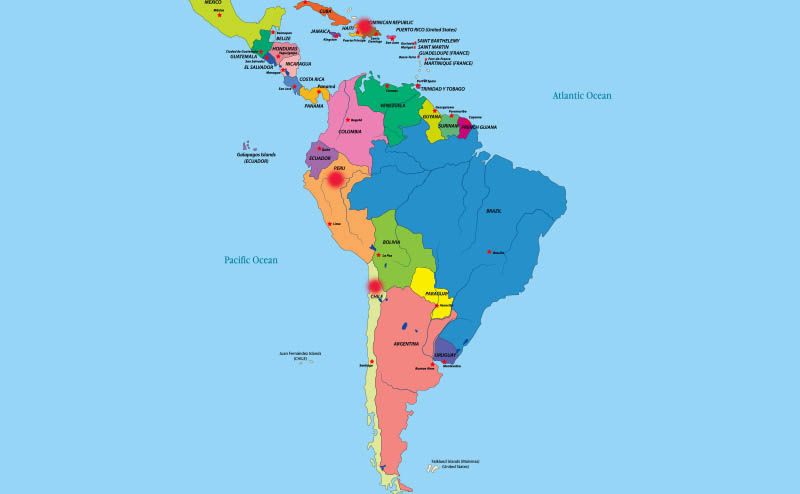
Building POCUS Training Pathways Across Latin America: Lessons from Peru, Chile, and the Dominican Republic
David A. Martin, MD
The joint meeting between the American College of Emergency Physicians (ACEP) Emergency Ultrasound Global Ultrasound Subcommittee and the Society for Academic Emergency Medicine (SAEM) Global Emergency Medicine Academy POCUS Committee continued its mission to advance global ultrasound education. The third session focused on hospital-based educational programs in point-of-care ultrasound (POCUS) across Latin America, with perspectives from Peru, Chile, and the Dominican Republic.
In Peru, Dr. Jacqueline Estofanero, director of the country’s first emergency ultrasound fellowship at Hospital Nacional Arzobispo Loayza, described her team’s efforts to create structured POCUS training despite significant regulatory challenges. Current laws restrict ultrasound use to radiologists, making it difficult for emergency physicians to incorporate POCUS into clinical care. Nevertheless, her group has trained physicians from multiple institutions, established a dedicated POCUS unit within the hospital, and used low-cost simulators to broaden access. Crucially, strong support from hospital leadership has helped sustain this progress.
In the Dominican Republic, Dr. Marino Estrella outlined the development of the nation’s first emergency ultrasound fellowship. Approved by the Ministry of Public Health in collaboration with the Dominican Republic Society of Medical Schools (ADOFEM), the program trains two fellows per year and integrates workshops, resident rotations, and international exchange opportunities. Despite limited equipment and ongoing regulatory hurdles, the program continues to grow thanks to institutional backing.
From Chile, Dr. Carlos Basaure shared the story of how ultrasound education has gradually taken root in emergency medicine. Although Chile has more than 700 emergency specialists serving a population of 17 million, only a few residency programs currently include ultrasound training. Early resistance from radiology and cardiology colleagues slowed progress, but educators built momentum by starting with medical students and junior faculty. These early efforts eventually laid the groundwork for residency-level rotations, a fellowship program across two hospitals, and innovative online resources that continue to expand access to training.
Across these diverse experiences, the panelists underscored several common themes. Persistence and advocacy were vital, as many programs began small—through elective rotations or pilot initiatives—before earning wider recognition. Institutional support also proved indispensable, with hospital administrators and universities providing legitimacy and resources to keep programs moving forward. Finally, collaboration was a consistent driver of success. By partnering with international organizations, local universities, and other specialties, programs were able to overcome resistance, promote sustainability, and create a broader community of practice for emergency ultrasound in Latin America.
The discussion closed with a clear vision for the future. In Chile, priorities include expanding ultrasound curricula within residency programs so that more emergency physicians graduate with foundational POCUS skills. In Peru, the focus is on pursuing regulatory reform to allow emergency physicians to perform POCUS legally, a change that could significantly expand patient access. Across the region, fellowship programs are emerging as centers of collaboration, providing opportunities for exchange and shared learning among countries already developing training pathways.
Together, these initiatives highlight a growing momentum to embed POCUS more firmly into emergency medicine education and practice across Latin America. They also reflect the broader mission of ACEP and SAEM to foster international collaboration, share best practices, and ensure that emergency physicians worldwide are equipped with the skills necessary to deliver high-quality patient care.
Save the Date:
Meetings occur via Zoom on the second Wednesday of odd months (January, March, May, etc.) at 10:00 AM PST / 12:00 PM CST / 1:00 PM EST.
For more information or to get involved, please join our subcommittee Google Group, search for ACEP EUS Global Health Subcommittee



